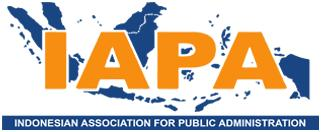Collaborative Model Strategy Through Co-Innovation and Government Empowerment Programs to Enhance Regional Performance in Poverty Alleviation in West Java
Abstrak
This study aims to provide an in-depth analysis of the influence of collaborative strategy, co-innovation, and empowering government on regional performance in poverty alleviation in West Java. Addressing empirical, theoretical, and research gaps, the study seeks to bridge existing literature by examining these relationships in a context where prior research is limited. Employing a descriptive and verification design with a quantitative approach, data is collected through questionnaires distributed to the Poverty Alleviation Coordination Teams (TKPKD) across 27 regencies and cities in West Java. The study utilizes non-random quota sampling and processes the data using Partial Least Squares Structural Equation Modeling (PLS-SEM) to ex-plore both direct and mediated effects among the variables. The anticipated results suggest that collaborative strategy positively influences re-gional poverty alleviation performance, both directly and indirectly through the me-diating roles of co-innovation and empowering government. Additionally, the study expects to reveal that geopolitical factors, government policies, and bureaucratic leadership significantly shape the implementation of collaborative strategies in the region. This research makes a novel contribution by addressing a significant empirical gap in the study of collaborative strategies in poverty alleviation within West Java.
Kata Kunci
Teks Lengkap:
PDF (English)Referensi
Aad, G., Aguilar Saavedra, J. A., & Collaboration, A. (2019). Electron and photon performance measurements with the ATLAS detector using the 2015–2017 LHC proton-proton collision data.
Bacon, C. R. (2023). Practical portfolio performance measurement and attribution. John Wiley & Sons.
Baloch, M. A., Mahmood, N., & Zhang, J. W. (2019). Effect of natural resources, renewable energy and economic development on CO2 emissions in BRICS countries. Science of the Total Environment, 678, 632–638.
Beshi, T. D., & Kaur, R. (2020). Public trust in local government: Explaining the role of good governance practices. Public Organization Review, 20, 337–350.
BPS. (2022). Tingkat Kemiskinan di Indonesia 2021-2022.
Bresciani, S., Ciampi, F., Meli, F., & Ferraris, A. (2021). Using big data for co-innovation processes: Mapping the field of data-driven innovation, proposing theoretical developments and providing a research agenda. International Journal of Information Management, 60, 102347.
Izraelevitz, J., Yang, J., Zhang, L., Kim, J., Liu, X., Memaripour, A., Soh, Y. J., Wang, Z., Xu, Y., & Dulloor, S. R. (2019). Basic performance measurements of the intel optane DC persistent memory module. ArXiv Preprint ArXiv:1903.05714.
Kulin, J. (2020). Who do you trust? How trust in partial and impartial government institutions influences climate policy attitudes. Climate Policy, 33–46. https://doi.org/10.1080/14693062.2020.1792822
Mansoor, M. (2021). Citizens’ trust in government as a function of good governance and government agency’s provision of quality information on social media during COVID-19. Government Information Quarterly, 38(4), 101597.
Mikalef, P., & Gupta, M. (2021). Artificial intelligence capability: Conceptualization, measurement calibration, and empirical study on its impact on organizational creativity and firm performance. Information & Management, 58(3), 103434.
Nathaniel, S. P., Nwulu, N., & Bekun, F. (2021). Natural resource, globalization, urbanization, human capital, and environmental degradation in Latin American and Caribbean countries. Environmental Science and Pollution Research, 28, 6207–6221.
Putri, I. A. D., & Wirawati, N. G. P. (2020). Implementation of good government governance, intellectual intelligence, emotional, and spiritual intelligence in managerial performance of village government management. International Research Journal of Management, IT and Social Sciences, 7(1), 169–176.
Su, C. W. (2023). Which risks drive European natural gas bubbles? Novel evidence from geopolitics and climate. Resources Policy, 81. https://doi.org/10.1016/j.resourpol.2023.103381
Taouab, O., & Issor, Z. (2019). Firm performance: Definition and measurement models. European Scientific Journal, 15(1), 93–106.
Tie, M. (2020). Why does the behavior of local government leaders in low-carbon city pilots influence policy innovation? Resources, Conservation and Recycling, 152. https://doi.org/10.1016/j.resconrec.2019.104483
Tjahjono, B., & Cao, D. (2020). Advancing bioplastic packaging products through co-innovation: A conceptual framework for supplier-customer collaboration. Journal of Cleaner Production, 252, 119861.
Zandkarimi, F., Nakladal, J., Vieten, J., & Geyer-Klingeberg, J. (2020). Co-innovation in a University-Industry Partnership-A Case Study in the Field of Process Mining. EMISA Forum: Vol. 40, No. 1.
Zaremba, A. (2021). Volatility in International Sovereign Bond Markets: The role of government policy responses to the COVID-19 pandemic. Finance Research Letters, 43. https://doi.org/10.1016/j.frl.2021.102011
Zhou, D. (2022). Voluntary environmental regulation and urban innovation: Evidence from low-carbon pilot cities program in China. In Technological Forecasting and Social Change (Vol. 175). https://doi.org/10.1016/j.techfore.2021.121388
DOI: https://doi.org/10.24198/jmpp.v9i2.62789
Refbacks
- Saat ini tidak ada refbacks.
Jurnal Manajemen Pelayanan Publik Indexed By:



This work is licensed under a Creative Commons Attribution-ShareAlike 4.0 International License.


















21.png)



.png)